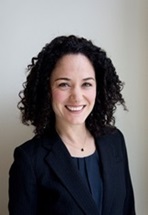Integrating the Essentials and Quality into Nursing Using the Million Hearts Initiative: Part 2
May 08, 2025
1:00 PM - 2:00 PM (ET)
Webinar Details
This webinar will introduce nursing educators to the Centers for Disease Control and Prevention’s hypertension, cholesterol, hypertension in pregnancy, tobacco cessation, and cardiac rehab control packages as competency-based tools for teaching evidence-based practice, quality improvement, and population health. Exemplars will be provided for integrating these control packages into nursing curricula and as DNP projects.
Outcomes:
- Explore the Million Hearts Control Change Packages
- Recognize best practices for implementation of the Million Hearts Change packages into nursing curricula
- Examine the Million Hearts Change packages as DNP project resources
Note: Recording of the webinar will be available soon after the webinar airs. Visit AACN's On-Demand Webinars to watch.
Speakers
Speakers

Kate Gawlik DNP, APRN-CNP, FAAN, FNAP, FAANP
Associate Professor of Clinical Nursing
The Ohio State University
Dr. Kate Gawlik is an Associate Professor of Clinical Nursing, Director of Undergraduate Health and Wellness Academic Programming, and the Director of the Bachelor of Science in health and wellness program at The Ohio State University. She is a Family Nurse Practitioner and her areas of expertise are in wellness, cardiovascular prevention, parental burnout, and nursing education. She pioneered an online educational program, the Million Hearts Fellowship, for healthcare professionals that has resulted in the cardiovascular screening and education of over 110,000 people nationwide and has been embedded into nursing curricula across the U.S. This work has received four national awards, including most recently, the AACN’s Innovation in Professional Nursing Education Award. She is a Fellow of the American Association of Nurse Practitioners, the National Academies of Practice, and the American Academy of Nursing.

Jennifer Cooper, DNP, RN, PHNA-BC, CNE
Associate Professor & Chair
Hood College Department of Nursing
Dr. Jennifer Cooper is an Associate Professor and Department Chair for Nursing at Hood College in Frederick, Maryland. Her experience in community/public health nursing practice and nursing education provides the foundation for her practice, teaching, scholarship and service. She is a Past President of the Association of Public Health Nurses and liaison to the national Million Hearts® initiative. Dr. Cooper leads Hood Million Hearts®, where she works with nursing students to promote cardiovascular disease prevention in the Frederick community. She serves as a liaison for nursing to the Frederi
ck County Board of Health as a Board Member of the Maryland Nurses Association. Dr. Cooper earned her DNP from The George Washington University, MSN from Rush University and BSN from Cedarville University.
Tags
Examining the Impact of Historical Policies on Health Disparities (Part 2 of 2)
March 20, 2025
12:00 PM - 1:00 PM (ET)
Webinar Details
Structural racism, embedded in unjust policies, has created and sustained poor social determinants of health thatcontribute to health disparities in the United States. These issues are deep, complex, and embedded in the history of our country. This can leave providers feeling overwhelmed as they work to address the residual effects that present as persistent chronic disease and premature death for many historically underrepresented groups. In this second of a two-part series, we will speak with experts in redlining, social determinants of health, and health disparities to understand how nurses can advocate for policy change to ameliorate health disparities and improve the health conditions for all people.
Outcomes:
- Identify at least one key area of health policy that can increase healthcare access.
- Verbalize key strategies to gain access to policy influencers.
- Verbalize at least one way to improve health outcomes and healthcare access at the local, state, and national levels.
This webinar is hosted by AACN’s Faculty Leadership Network.
Miss the first webinar in this series? View Part 1 webinar here.
Have questions prior to the webinar? Submit them here.
Note: Recording of the webinar will be available soon after the webinar airs. Visit AACN's On-Demand Webinars to watch.
Speakers
Speakers
 Felesia Bowen, PhD, DNP, PPCNP-BC, FAAN
Felesia Bowen, PhD, DNP, PPCNP-BC, FAAN
Professor and Associate Dean
University of Alabama at Birmingham School of Nursing
Dr. Felesia Bowen is Professor and Associate Dean at the University of Alabama at Birmingham School of Nursing. She is a decorated U.S. Army Nurse Corps veteran who earned her BSN at Tuskegee University, Master’s degree from Rutgers University, PhD from Columbia University, and DNP from Fairleigh Dickinson University, Teaneck, NJ. Dr. Bowen has devoted her career to improving health disparities and equity for children, their families, and the communities they live in. Dr. Bowen is known and respected for her unconventional and upstream approaches to addressing nursing workforce diversity. Dr. Bowen is a firm believer that student nurse diversity is necessary to decrease health disparities in minority and marginalized individuals. Dr. Bowen is a nationally certified primary care pediatric nurse practitioner and President-elect of the National Association of Pediatric Nurse Practitioners.
 Loretta T. Lee, PhD, RN, CRNP, FNP-BC, CNE, FADLN, FNAP
Loretta T. Lee, PhD, RN, CRNP, FNP-BC, CNE, FADLN, FNAP
Professor and Department Vice Chair, Family, Community and Health Systems
University of Alabama Birmingham School of Nursing
Dr. Loretta T. Lee, Professor and Vice Chair of the Department of Family, Community and Health Systems at the University of Alabama at Birmingham School of Nursing, is a leading figure in health policy advocacy and the healthcare industry. Her fellowships with the American Academies of Practice, the Academy of Diversity Leaders in Nursing, and her National Black Nurses Association Inc. Health Policy Committee chairmanship demonstrate her dedication to interprofessional education and advocating for health policies that will transform healthcare. Dr. L ee’s academic journey, from earning her PhD in 2012 to her BSN in 1986, has been a testament to her commitment to nursing and healthcare. As a nurse scientist, her scholarship and research center on advancing transformative health equity for historically marginalized populations. Dr. Lee is a board-certified family nurse practitioner, a National League for Nursing Commission for Nursing Education Accreditation program evaluator, and an associate editor for the international peer-reviewed journal Ethnicity and Health.

Joy Deupree, PhD, MSN, RN, WHNP-BC, FAAN
Professor Nursing Acute, Chronic & Continuing Care
University of Alabama at Birmingham School of Nursing
Dr. Joy Deupree is a board-certified women’s health nurse practitioner, educator, researcher and policy advocate. Her work has focused on reducing health disparities in rural and underserved areas of the South. In 2006, Dr. Deupree co-founded the Nurse Practitioner Alliance of Alabama (NPAA). Her advocacy for all nurses to practice to the full extent of their training and education led her to dedicate more than 10 years to NPAA leadership positions strategizing with stakeholders in Alabama to reduce barriers to practice and improve access to care. As president of the NPAA from 2012 to 2013, she championed numerous legislative and regulatory efforts that exponentially increased practice opportunities for NPs to improve access to care for rural Alabamians. Dr. Deupree was a faculty member in the UAB School of Nursing from 1999 to 2019, where she held numerous leadership positions, and in 2019, she relocated to the University of South Carolina College of Nursing, where she was a professor and Associate Dean for Practice Innovation, Partnerships. In 2023, she returned to the UAB School of Nursing and was a professor and Director of Health Policy Partnerships in the Office of Clinical and Global Partnerships from 2023 to 2024.
Lorna Finnegan, PhD, RN, FNP, FAAN
Dean and Professor
Loyola University Chicago
Lorna Finnegan joined Loyola University Chicago in 2019 as Professor and Dean of the Marcella Niehoff School of Nursing. She brings extensive experience in academic research, teaching, clinical practice, and leadership to her role. Dr. Finnegan earned her BSN, MS, and PhD from the University of Illinois Chicago (UIC) College of Nursing. Before joining Loyola, she held leadership positions at UIC, including Executive Associate Dean and Department Head. Earlier in her career, she served as the Founding Director of the Family Nurse Practitioner Program at Saint Xavier University in Chicago. She is also the past president of the National Organization of Nurse Practitioner Faculties, the leading organization dedicated to advancing quality nurse practitioner education. Her scholarship, clinical practice, and leadership focus on integrating big data analytics, strategic academic-practice partnerships, innovative teaching strategies, and policy-shaping leadership to enhance access to primary care and promote health equity among vulnerable and underserved populations. Dr. Finnegan has received National Institutes of Health funding for her research on symptom clusters in adults with multiple chronic illnesses and has been recognized with numerous awards for her contributions to teaching, research, and leadership. She has also served as a visiting scholar at universities in Thailand, South Africa, and South Korea.
Tags
Examining the Impact of Historical Policies on Health Disparities (Part 1 of 2)
February 27, 2025
12:00 PM - 1:00 PM (ET)
Presented by the Faculty Leadership Network
Webinar Details
Health disparities disproportionately impact individuals from historically underrepresented backgrounds and their communities. Institutional and structural racism undergird the conditions that perpetuate health disparities and make it easy to blame the affected for their poor health. Healthcare leaders and providers must understand the egregious, intentional, and unjust policies that have shaped the way for poor social determinants of health. The first of this two-part series serves as a primer to help providers understand the issue's complexity both across the nation and within their own communities.
Outcomes:
- Understand the etiology of redlining.
- Identify redlines within the communities they practice in.
- Explain how high prevalence health disparity issues in their community are connected to unjust policies.
- Develop strategies to incorporate the concept into their courses and curriculum.
Note: Recording of the webinar will be available soon after the webinar airs. Visit AACN's On-Demand Webinars to watch.
Speakers
Speakers
 Felesia Bowen, PhD, DNP, PPCNP-BC, FAAN
Felesia Bowen, PhD, DNP, PPCNP-BC, FAAN
Professor and Associate Dean
University of Alabama at Birmingham School of Nursing
Dr. Felesia Bowen is Professor and Associate Dean at the University of Alabama at Birmingham School of Nursing. She is a decorated U.S. Army Nurse Corps veteran who earned her BSN at Tuskegee University, Master’s degree from Rutgers University, PhD from Columbia University, and DNP from Fairleigh Dickinson University, Teaneck, NJ. Dr. Bowen has devoted her career to improving health disparities and equity for children, their families, and the communities they live in. Dr. Bowen is known and respected for her unconventional, and upstream approaches to addressing nursing workforce diversity. Dr. Bowen is a firm believer that student nurse diversity is necessary to decrease health disparities in minority and marginalized individuals. Dr. Bowen is a nationally certified primary care pediatric nurse practitioner and President-elect of the National Association of Pediatric Nurse Practitioners.
Tags
Disaster Ready: Preparing Nurses for Crisis Response
February 11, 2025
2:00 PM - 3:00 PM (ET)
Webinar Details
"Disaster Ready" explores the critical role of nurses in disaster management and the importance of comprehensive disaster nursing education. The webinar explores the current state of disaster preparedness, response, and recovery in nursing, focusing on education needs, workforce readiness, and community resiliency. The webinar addresses significant gaps in disaster nursing education and offers strategies to bridge the gap between theoretical knowledge and the practical application of the AACN Essentials, particularly Domain 3: Population Health, 3.6 Competency: Advance preparedness to protect population health during disasters and public health emergencies.
Outcomes:
- Understand the critical role of nurses in disaster management, including their multifaceted responsibilities in emergency preparation, response, and recovery.
- Recognize the value of Academic Service-Learning (AS-L) in enhancing disaster nursing education by integrating theoretical knowledge with practical community service experiences.
- Identify the key components of effective disaster nursing curricula, including active learning approaches, simulation-based training, and collaboration with community organizations, such as the American Red Cross.
Note: Recording of the webinar will be available soon after the webinar airs. Visit AACN's On-Demand Webinars to watch.
Speakers
Speakers
 Shawna Sisler, PhD, MS, MA, MAPP, APRN, CPNP-PC, PMHS
Shawna Sisler, PhD, MS, MA, MAPP, APRN, CPNP-PC, PMHS
Assistant Professor (Clinical)
University of Utah
Dr. Shawna Sisler brings extensive expertise in population health, pediatrics, and mental health to her role in nursing education. Her academic background includes a PhD in Nursing Science from the University of Utah, an MS in Nursing from the University of California, San Francisco (UCSF), and additional Master's degrees in Applied Positive Psychology and Counseling from the University of Pennsylvania and Santa Clara University, respectively. As a passionate community advocate and changemaker, Dr. Sisler spearheads innovative approaches to Utah’s behavioral health integration and social determinants of mental health in rural and frontier communities. She is the Principal Investigator for the HRSA-funded Utah Rural Opioid Healthcare Consortium - Collaborative Care Model (UROHC-CCM) grant, which aims to reduce opioid usage and dependence in Carbon, Emery, and Wayne Counties - areas in east-central Utah with some of the highest rates of opioid-related deaths in the state. In this role, she directs research and clinical strategies, collaborates with rural community clinics, and manages the project's financial and administrative aspects. Additionally, Dr. Sisler co-leads redesign efforts in the population health vertical at the College of Nursing, contributing to the shift toward competency-based education. Dr. Sisler's commitment to innovative healthcare solutions and community advocacy extends beyond her academic work, as she serves as a long-time volunteer and Loaned Nurse Executive for the American Red Cross, working directly under the Chief Nurse on their Nursing and Health leadership team at the National Headquarters.

Richard MacIntyre, PhD, RN, FAAN
Professor
Samuel Merritt University
Dr. Richard MacIntyre is Professor and Director of the RN to BSN Program at Samuel Merritt University. He is also a board member at TriState College of Acupuncture in NYC, a member of the Advisory Council on Policy, STTI, and a member of the Nursing Council at Western Governors. He was a Robert Wood Johnson Executive Nurse fellow where he focused on innovative curricula, including standardized curricula for informatics.
Tags
Teaching Planetary Health During the Anthropocene Epoch
September 26, 2024
2:00 PM - 3:00 PM (ET)
Webinar Details
This webinar is hosted by AACN’s Faculty Leadership Network (FLN).
The Anthropocene is a geological epoch acknowledging human activity's influence on the planet's climate and ecosystem. It recognizes that human actions have been the primary factor affecting the environment, both locally and globally, for the past couple of centuries and will continue to do so in the foreseeable future. Currently, communities worldwide are facing new health challenges related to significant fluctuations in temperature. These have led to droughts, floods, changes in air quality, and unexpected variations in insect and rodent disease vectors. Unfortunately, many nursing students lack the knowledge, experience, or skills to collaboratively respond to these complex health challenges emerging in the 21st century.
Therefore, there is a need to re-evaluate the curriculum to provide fresh insights into new health challenges related to living and working in the Anthropocene. The purpose of this presentation is to describe how a Planetary Health lens can enable an understanding and appreciation of the critical linkages, cause-effect relationships, and feedback loops between environmental change and human health in the Anthropocene epoch.
Objectives:
- Define Anthropocene epoch.
- Describe how a Planetary Health lens will enable an understanding and appreciation of the critical linkages, cause-effect relationships, and feedback loops between environmental change and human health.
- Identify Anthropocene-related diseases based on The Centers for Disease Control’s (2022) “Climate Effects on Health” diagram.
- To re-evaluation of the nursing curriculum to include skills for real-world nursing practice in the Anthropocene Epoch
Note: Recording of the webinar will be available soon after the webinar airs. Visit AACN's On-Demand Webinars to watch.
Speakers
Speaker

Sarah Oerther, PhD, MEd, RN, FNP-BC, FNAP, ANEF
Assistant Professor
Goldfarb School of Nursing
Barnes-Jewish College
Sarah Oerther is an Assistant Professor at Goldfarb School of Nursing at Barnes-Jewish College. To promote climate resilience, Dr. Oerther seeks to create culturally appropriate tools that can help individuals assess their risk and take necessary action to protect their health. By doing so, her program of research is expected to reduce the economic burden caused by preventable climate-related illnesses and ensure a healthier and more productive society. She is currently part of the 2024 cohort for Environmental Health Research Institute for Nurse and Clinician Scientists (EHRI-NCS) and was recently selected as a CHARTER fellow for 2024 with the Woodruff Health Sciences Center at Emory University.
